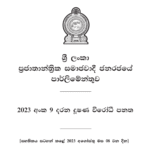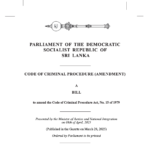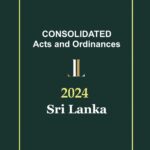Introduction This report examines the Supreme Court of Sri Lanka case SC Appeal No. 169/2015, which involves a property dispute between Malagodage Iranganie (Plaintiff) and Malagodage Thilakeratne (1st Defendant) concerning the alleged existence of a constructive trust. The case initially went through the District Court and the Civil Appellate High Court before reaching the Supreme Court for final determination.
Background of the Case The dispute centers around a property located at Sri Sangabodhi Mawatha, Wellampitiya. The Plaintiff, Malagodage Iranganie, transferred the property to her brother, Malagodage Thilakeratne, via Deed No. 1527, dated 2nd May 1990, attested by Notary Public Nalini Peiris. The Plaintiff contended that the transfer was made under the understanding that the property would be held in trust by the 1st Defendant to secure a loan from the Ceylon Electricity Board Employees Provident Fund (CEB EPF) and later reconveyed to her upon loan repayment. She further asserted that no consideration was paid for the transfer.
The 1st Defendant, however, claimed that the transfer was an outright sale, supported by a loan secured from the CEB EPF, with the proceeds allegedly paid to the Plaintiff as consideration. The Plaintiff argued that she never received the funds and that the 1st Defendant refused to reconvey the property after repaying the loan.
Proceedings and Judicial Findings
- District Court Decision (2009)
- The District Court dismissed the Plaintiff’s claim, ruling in favor of the 1st Defendant.
- It found that the Plaintiff failed to establish the existence of a constructive trust and that the transfer was legally valid.
- Civil Appellate High Court Decision (2014)
- The High Court overturned the District Court’s ruling and ordered a retrial.
- The basis for the retrial was that the District Judge who delivered the final judgment had not heard the full evidence.
- The High Court further noted that the 1st Defendant failed to prove that he had duly paid consideration to the Plaintiff.
- Supreme Court Analysis and Ruling (2025)
- The Supreme Court reviewed whether a constructive trust existed under Section 83 of the Trusts Ordinance, which states that if it cannot be inferred that the transferor intended to part with beneficial ownership, the transferee holds the property in trust.
- The Court found inconsistencies in the Plaintiff’s claim, particularly regarding the alleged lack of consideration.
- The 1st Defendant produced evidence that a cheque had been issued to the Plaintiff by the CEB EPF, though the Plaintiff denied receiving it.
- The Supreme Court emphasized that the burden of proof lay with the Plaintiff to establish the existence of a constructive trust.
- Given that the Plaintiff failed to conclusively prove that she had not received consideration and considering other attendant circumstances, the Court held that the transfer was not subject to a trust obligation.
- The Supreme Court overturned the Civil Appellate High Court’s decision and reinstated the District Court’s ruling in favor of the 1st Defendant.
Legal Implications and Precedent
- This ruling reinforces the evidentiary burden on claimants seeking to establish a constructive trust.
- It upholds the principle that a duly executed deed of transfer must be challenged with substantial proof of contrary intent.
- The case sets a precedent for property disputes involving familial transactions and alleged trust arrangements.
Conclusion The Supreme Court’s ruling highlights the necessity of clear documentation in property transactions. It underscores the principle that a constructive trust cannot be established without strong evidence of the transferor’s intent to retain beneficial ownership. The decision provides judicial clarity on property rights and trust obligations in Sri Lanka.
Read full Judgment














